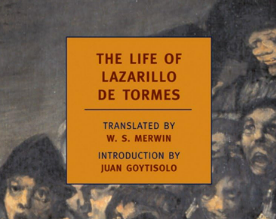Chapter III: How Lazaro Escaped from the Sea
byChapter III: How Lazaro Escaped from the Sea begins with a chaotic, breathless effort to grasp at both survival and wealth. Trapped between terror and hope, Lazaro pushes his body into the waves, clawing toward a chest of treasure floating just out of reach. He cannot swim, yet necessity compels him forward. The sea, cruel and cold, batters his limbs while fish snap at his skin as if mocking his desperation. Every gulp of seawater feels like punishment, reminding him of the bitter concoction his wife once fed him—a joke then, but cruelly echoed now. Just as his arms lose strength and his lungs cry out, a fishing net entangles him. Caught among flailing fish and suffocating strands, Lazaro is dragged upward, barely alive and far from triumphant. The water spits him out not as a victor, but as part of the catch.
When the fishermen finally lift their net, they recoil at what they see. His body, wrapped in rope and seaweed, appears half-human, half-demon to their frightened eyes. Panic spreads among them; one man shouts to cut the line, fearing they’ve caught a cursed soul. A quick slice severs the tether that once bound Lazaro to his hopes. Along with it, his dream of treasure sinks quietly back into the deep. The men, half-convinced they’ve encountered something unnatural, are startled to find him breathing. He is offered wine—sharp and stinging—yet it rushes through his body like life itself, warming a spirit chilled by salt and despair. Lazaro, too exhausted to move, lies there motionless, torn between laughter and mourning.
Once awake, his thoughts turn first not to thanks, but to the rope. He asks where it came from and how long he had been bound, each answer weighing heavily on his sense of betrayal. The fishermen, puzzled and wide-eyed, say little, treating him as both marvel and mystery. Lazaro realizes they see him not as a man rescued, but as a story, something to tell others with wide gestures and wild details. He remains quiet, knowing too well how quickly pity turns to exploitation. Though fed and warmed, he cannot shake the feeling that he has exchanged one prison for another. The chest—his imagined escape from poverty—is gone. The sea has kept it, and he is left once again to start with nothing.
Despite his exhaustion, Lazaro’s wit does not abandon him. He thinks about how fate has toyed with him, dangling riches only to rip them away. This game of near-triumph followed by cruel reversal has become a pattern he knows too well. Inwardly, he mocks the idea of divine favor, wondering if heaven watches for amusement rather than justice. Yet beneath the bitterness, there is a strange resilience. He has lived through more than most men could endure. If nothing else, he can say he survived what others would not. His tone, sharp as ever, masks the ache of another loss, another chance swept away like foam on the tide.
This chapter captures the fragile space between survival and failure, where effort is not always rewarded and good fortune slips through the cracks. Lazaro’s body may be weak, but his voice remains defiant, laced with sarcasm and strange pride. He may have emerged without gold, but he carries something heavier—an unbreakable understanding of how little control a man has over his fate. The world, as he sees it, does not care for honesty or strength, only for spectacle and luck. Yet in the end, even soaked and penniless, he refuses to collapse. He rises again, not because he believes in miracles, but because he knows that those who keep moving often find new paths—even when the sea has swallowed the one they wanted most.

